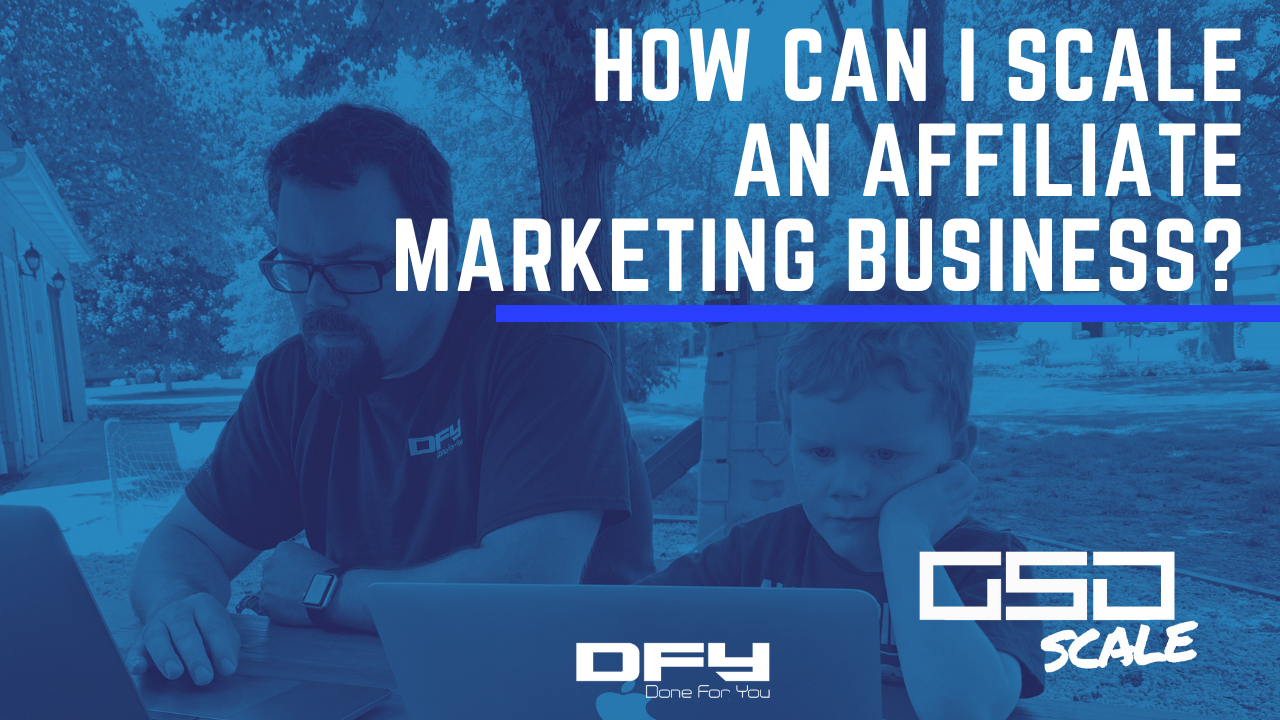Scaling an affiliate business is crucial for growth. It helps increase revenue and expand reach.
Affiliate marketing can be a profitable venture. But, achieving significant growth requires strategic planning and execution. Whether you’re just starting out or looking to take your existing affiliate business to the next level, understanding how to scale effectively is key.
This involves optimizing your current processes, exploring new marketing channels, and leveraging data to make informed decisions. By focusing on these areas, you can build a more robust and sustainable affiliate business. This guide will walk you through essential steps and strategies to help you scale your affiliate business successfully. Let’s dive into the details and unlock your business’s full potential.
Building A Strong Foundation
Scaling an affiliate business requires a solid foundation. Without it, growth becomes difficult. A strong foundation ensures your business remains stable and sustainable. Let’s explore key steps to build this foundation.
Choosing The Right Niche
Selecting the right niche is crucial. It sets the direction of your business. Focus on areas you are passionate about. Passion drives motivation and effort. Research the market for potential profitability. Identify niches with high demand and low competition. Use tools like Google Trends and Keyword Planner. These tools help you understand market interests.
Understanding Your Audience
Knowing your audience is essential. It helps tailor your content and promotions. Start by creating a detailed audience profile. Identify their interests, needs, and pain points. Use social media insights and surveys to gather data. Understand their behavior and preferences. This data helps in creating targeted marketing strategies.
Engage with your audience regularly. Respond to comments and messages. Build a community around your niche. This builds trust and loyalty. Trust leads to higher conversions and repeat customers.

Credit: doneforyou.com
Creating Quality Content
Creating quality content is essential for scaling your affiliate business. Quality content attracts visitors and keeps them engaged. This leads to more clicks and conversions. Focus on writing content that is informative, engaging, and valuable to your audience. Let’s explore some key strategies.
Crafting Engaging Articles
Writing engaging articles is crucial. Start with a catchy headline. It should grab attention. Make your introduction interesting. It should hook the reader. Use short paragraphs. They are easier to read. Include bullet points and lists. They make information easy to digest. Write in a conversational tone. It feels more personal. Always provide value. Answer questions your audience might have.
Utilizing Multimedia
Multimedia can make your content more engaging. Use images. They break up text and add visual interest. Include videos. They can explain complex ideas easily. Infographics are great too. They present information in a visually appealing way. Podcasts can also be effective. They offer another way to consume content. Always ensure your multimedia is high quality. It reflects on your brand.
Leveraging Seo Techniques
Scaling an affiliate business requires strategic efforts. One crucial strategy is leveraging SEO techniques. This ensures higher visibility on search engines, driving organic traffic to your site. This section explores how to use SEO to grow your affiliate business effectively.
Keyword Research
Keyword research is the foundation of SEO. Identify high-volume keywords that align with your niche. Use tools like Google Keyword Planner or Ahrefs to find these keywords.
- Focus on long-tail keywords with lower competition.
- Analyze your competitors’ keywords for gaps you can fill.
- Consider user intent to ensure relevance.
Incorporate these keywords naturally into your content. This practice helps your site rank higher in search engine results pages (SERPs).
On-page Optimization
On-page optimization involves enhancing individual web pages. This helps them rank higher and earn more relevant traffic in search engines.
| Element | Optimization Tips |
|---|---|
| Title Tags | Include primary keywords. Keep it under 60 characters. |
| Meta Descriptions | Write compelling descriptions. Use primary keywords. |
| Headers (H1, H2, H3) | Structure content with relevant keywords. Use H1 for main title. |
| Content | Ensure content is unique and valuable. Use keywords naturally. |
| URLs | Keep URLs short and descriptive. Include keywords. |
| Images | Optimize images with alt text. Use keywords in alt text. |
These techniques improve your site’s SEO, making it more likely to attract organic traffic.

Credit: kenmoo.me
Utilizing Social Media
Social media platforms offer vast opportunities for scaling an affiliate business. They provide direct access to millions of potential customers. Using social media effectively can boost your affiliate marketing efforts. Here’s how to make the most of social media to grow your affiliate business.
Building A Presence
Start by creating profiles on major social media platforms. Focus on Facebook, Instagram, Twitter, and LinkedIn. Ensure your profiles are complete and professional. Use a clear profile picture and a compelling bio. Consistency is key. Your branding should be the same across all platforms. Post regularly to stay visible. Share valuable content related to your niche. This helps in building credibility and trust with your audience.
Engaging With Followers
Engagement is crucial for social media success. Respond to comments and messages promptly. This shows that you value your followers. Ask questions to encourage interaction. Create polls and quizzes to keep your audience engaged. Share user-generated content to build a sense of community. Collaborate with other influencers in your niche. This can help you reach a wider audience. Run contests and giveaways to boost engagement. This can increase your follower count and visibility.
Investing In Paid Advertising
Investing in paid advertising can significantly boost your affiliate business. It allows you to reach a wider audience and generate more leads. This section explores two effective methods: PPC campaigns and social media ads.
Ppc Campaigns
Pay-per-click (PPC) campaigns are a popular form of paid advertising. They help drive targeted traffic to your website. You only pay when someone clicks on your ad. This makes PPC a cost-effective option. Google Ads is a common platform for PPC campaigns.
To create a successful PPC campaign:
- Keyword Research: Identify the keywords your audience uses.
- Ad Copy: Write compelling ads that attract clicks.
- Landing Pages: Ensure your landing pages are relevant and optimized.
- Budget Management: Set a daily budget to control spending.
Social Media Ads
Social media ads can be very effective for affiliate marketing. Platforms like Facebook, Instagram, and Twitter offer targeted advertising options. These ads can help you reach specific demographics and interests.
Consider these tips for running successful social media ads:
- Define Your Audience: Use the platform’s targeting options.
- Create Engaging Content: Use visuals and clear messages.
- Monitor Performance: Track metrics and adjust your strategy.
Here is a comparison of PPC and Social Media Ads:
| Aspect | PPC Campaigns | Social Media Ads |
|---|---|---|
| Platform | Google Ads | Facebook, Instagram, Twitter |
| Cost | Per Click | Per Impression or Click |
| Targeting | Keywords | Demographics, Interests |
| Content | Text Ads | Visual and Text Ads |
Building Strong Partnerships
Building strong partnerships is key to scaling an affiliate business. These partnerships help you reach new audiences and expand your influence. Here, we explore two effective ways to build these vital connections.
Networking With Influencers
Networking with influencers can boost your affiliate business. Influencers have loyal followers who trust their recommendations. Building relationships with them can help you gain credibility.
Follow these steps to network with influencers:
- Identify relevant influencers in your niche.
- Engage with their content through comments and shares.
- Reach out with a personalized message.
- Offer value in exchange for their partnership.
- Maintain consistent communication.
These steps help you build trust and foster long-term relationships.
Collaborating With Brands
Collaborating with brands can open new opportunities for your affiliate business. Brands provide resources, credibility, and reach. Strong brand partnerships can boost your visibility.
Here are some tips to collaborate with brands:
- Research brands that align with your niche.
- Highlight mutual benefits in your proposal.
- Showcase your past successes and audience engagement.
- Negotiate terms that benefit both parties.
- Deliver on your promises to build trust.
Effective brand collaboration can lead to long-term success and growth.
Tracking Performance Metrics
Tracking performance metrics is crucial for scaling an affiliate business. Understanding how your campaigns perform helps you make better decisions. It allows you to see which strategies work and which need improvement. Let’s dive into some key areas to focus on.
Analyzing Traffic Data
Traffic data shows where your visitors come from. It helps you understand user behavior. Use tools like Google Analytics to track sources. Check if visitors come from social media, search engines, or direct links. Look at the number of visitors, page views, and bounce rates. This data helps you see what attracts your audience.
Pay attention to the time spent on your site. Longer visits often mean more engagement. Identify which pages get the most views. These pages might be your best performers. Adjust your strategy based on this data to attract more traffic.
Monitoring Conversion Rates
Conversion rates show how many visitors take desired actions. This could be making a purchase or signing up for a newsletter. High conversion rates mean your site is effective. Use conversion tracking tools to measure this.
Identify which pages or offers convert the best. Test different calls to action to see what works. Make changes to improve low-converting pages. Small tweaks can lead to big improvements. Always aim to increase your conversion rates.
Scaling Operations Efficiently
Scaling an affiliate business can be a challenging task. Efficient operations are key to success. Streamlining processes helps you focus on growth. It reduces manual work and increases productivity.
Automating Processes
Automation is a powerful tool. It saves time and reduces errors. Use automated email marketing tools. Schedule your posts in advance. Automate your social media updates. This keeps your audience engaged.
Consider using software for tracking and reporting. It provides real-time data. This helps you make informed decisions. Automation makes your business run smoothly. It allows you to focus on strategy.
Outsourcing Tasks
Outsourcing can lighten your workload. Hire freelancers for content creation. They can write blog posts and reviews. This keeps your content fresh. It also helps you maintain a consistent posting schedule.
Outsource graphic design tasks. Freelancers can create eye-catching visuals. This improves your website’s appearance. You can also hire virtual assistants. They can handle administrative tasks. This frees up your time for important decisions.
Outsourcing is cost-effective. You don’t need to hire full-time employees. Pay for services as needed. This flexibility helps you manage your budget. It allows you to allocate resources efficiently.

Credit: impact.com
Frequently Asked Questions
What Is Affiliate Business Scaling?
Scaling an affiliate business involves expanding efforts to increase revenue. It includes optimizing strategies, targeting new audiences, and leveraging technology.
How Do You Scale An Affiliate Business?
To scale, diversify your traffic sources, optimize conversion rates, and use data analytics. Investing in automation tools can also help.
Why Is Scaling Important In Affiliate Marketing?
Scaling is crucial for growth and sustainability. It allows affiliates to reach broader audiences, increase earnings, and stay competitive.
What Tools Help In Scaling An Affiliate Business?
Tools like analytics software, automation platforms, and CRM systems can significantly aid in scaling. They improve efficiency and insights.
Conclusion
Scaling an affiliate business takes effort and strategic planning. Consistency is key. Focus on high-quality content and targeted marketing. Build strong relationships with partners. Regularly analyze your performance data. Adjust your strategies based on insights. Stay updated with industry trends.
Always prioritize your audience’s needs. With dedication, you can achieve sustainable growth. Remember, patience and persistence lead to success. Keep learning and adapting along the way. Your affiliate business will flourish with the right approach.